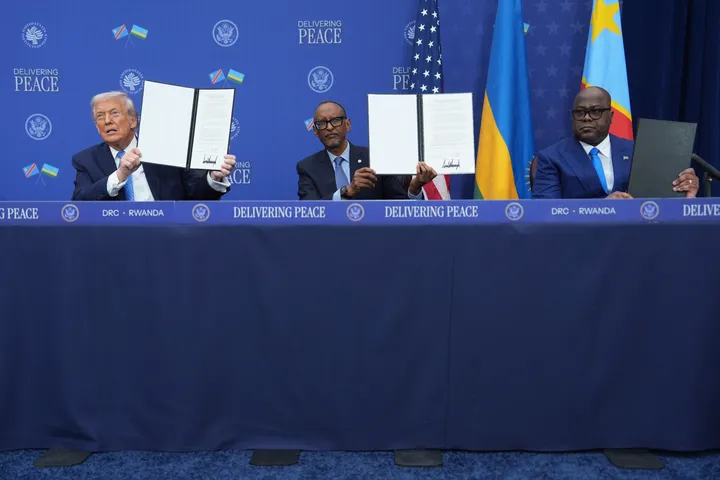By Brian Okoth
A joint team set up to address political division in Kenya has completed its task, and made a raft of recommendations.
The team, made up of representatives of the government and the opposition, took four months to compile its report.
The bipartisan team was assembled after the opposition led a series of protests in Kenya between March and July, citing unfavourable economic policies including taxes that had pushed up the cost of living.
The government's side was led by the Leader of the Majority in Kenya's National Assembly Kimani Ichung'wah, while the opposition was led by former Vice President Kalonzo Musyoka.
Opposition leader's office
Among the proposals include setting up the Office of the Official Opposition Leader, which will be occupied by the first runner-up in Kenya's presidential elections.
Also proposed, is the formation of the Office of the Prime Minister, who will be nominated by the president and approved by the National Assembly.
The last premier Kenya had was Raila Odinga, who served in the grand coalition government led by President Mwai Kibaki between 2008 and 2013 after the 2007 post-election violence.
The ten-member joint team – called the National Dialogue Committee (NADCO) – also recommended a review of the 2022 presidential election results, which were disputed by opposition leader Odinga.
Electoral board selection
To encourage inclusivity in the selection of electoral board's commissioners, the team recommended that nine people, instead of the current seven, should form the selection panel.
Kenya's Independent Electoral and Boundaries Commission (IEBC) currently does not have any commissioner in office following the resignation or expiry of contracts of the seven former office holders.
The joint team also proposed an increase of the period allowed to contest a presidential election outcome in court – from 14 to 21 days.
NADCO also recommended that electoral reforms passed within 18 months to a general election should be implemented in the subsequent polls after the immediate one.
Wastage of state resources
The opposition side had pushed for the lowering of value added tax (VAT) on petroleum products from 16% to the previous rate of 8%, but NADCO did not strike an agreement on the issue.
The team also failed to agree on the opposition's proposal to scrap the 1.5% housing levy, which was introduced in July 2023.
In efforts to reduce the cost of fuel, the joint team recommended that the road maintenance levy charged on each litre of petroleum products should be reduced by 3 shillings ($0.033), and the anti-adulteration levy slashed by 3 shillings (($0.020).
To address wastage of resources in government, NADCO recommended that the three arms of government – Executive, Legislature and Judiciary – should reduce their travel expenses by at least 50%.
County allocations
The team also asked the Salaries and Remuneration Commission (SRC), the body mandated to review public officers' salaries in Kenya, to revise downwards the daily subsistence allowances of public officers by up to 30%.
NADCO also recommended that the yearly allocations to county governments should be increased to 20% of the annual national revenue, from the current 15%.
Other recommendations include incorporating in the constitution provisions for funds for constituency development, senate oversight, and ward development.
NADCO has since presented the report to President William Ruto and Odinga ahead of its tabling in both the Senate and the National Assembly.
President welcomes report
Speaking at a church in Kenya's capital Nairobi on Sunday, Ruto said he had welcomed the recommendations, which would allow Kenya to "move forward… without hate and division."
Musyoka, who represents the opposition, said in a statement on Saturday: "It is our firm belief that the report has addressed the issues that formed the basis of the talks and the recommendations therein will progressively heal our wounds, foster togetherness, promote national unity, restore our national pride, and usher us to greater prosperity."
Kenya was rocked by deadly protests between March and July, when the opposition led its supporters in nationwide demonstrations over a high cost of living. More than 30 people died in the protests.
























